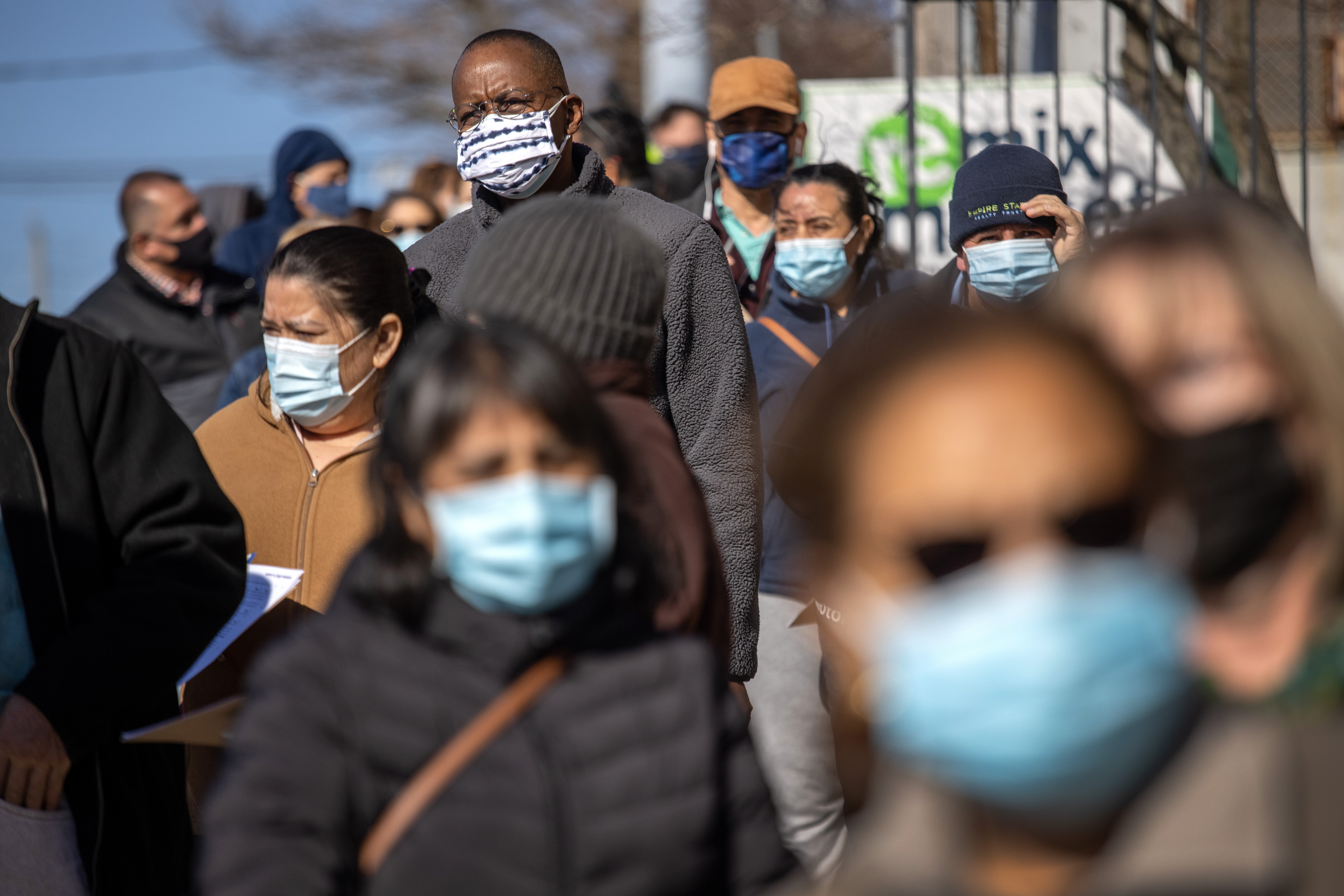Covid cases popped up in US weeks before the virus was recognised by health officials, says new study
Some experts say that the infections might have been due to other coronaviruses

Your support helps us to tell the story
From reproductive rights to climate change to Big Tech, The Independent is on the ground when the story is developing. Whether it's investigating the financials of Elon Musk's pro-Trump PAC or producing our latest documentary, 'The A Word', which shines a light on the American women fighting for reproductive rights, we know how important it is to parse out the facts from the messaging.
At such a critical moment in US history, we need reporters on the ground. Your donation allows us to keep sending journalists to speak to both sides of the story.
The Independent is trusted by Americans across the entire political spectrum. And unlike many other quality news outlets, we choose not to lock Americans out of our reporting and analysis with paywalls. We believe quality journalism should be available to everyone, paid for by those who can afford it.
Your support makes all the difference.A new study has revealed that the US had a few cases of Covid-19 even before health experts officially recognised the first coronavirus case in the country.
A blood sample analysis of 24,000 Americans taken early last year is the largest and latest study to suggest that Covid-19 cases popped up in the country as early as December 2019.
The first official case was reported in January 2020 when a traveller who had returned from Wuhan on 15 January sought help for his symptoms at a clinic in Washington, DC, on 19 January.
The Associated Press reported that the analysis was not “definitive” but said that federal health officials are increasingly accepting this timeline “in which small numbers of Covid-19 infections may have occurred in the US before the world ever became aware of a dangerous new virus erupting in China.”
The study published online on Tuesday in the journal Clinical Infectious Diseases was conducted by a team including researchers at the National Institutes of Health. As part of a long-term study called “All Of Us” that seeks to track one million Americans over years to study health, the team of researchers analysed blood samples from more than 24,000 people across the country in the first three months of 2020.
The CDC earlier said that the first Covid-19 positive case in the country arrived in the country during a three-week window from mid-January to early February. But research since then has suggested, including some by CDC itself, that the US already had a few cases by Christmas 2019.
Keri Althoff, the study’s lead author and associate professor at the Johns Hopkins Bloomberg School of Public Health, told the media that one of the Illinois cases was infected as early as Christmas eve.
The Clinical Infectious Diseases study indicates that nine study participants: five from Illinois, and one each from Massachusetts, Mississippi, Pennsylvania, and Wisconsin, were infected earlier than any Covid-19 case was ever reported in those states.
Some experts, though, have dismissed the study results by saying that those early infections were by “other coronaviruses and not the pandemic strain.”
The Associated Press quoted William Hanage, a Harvard University expert on disease dynamics, as saying: “While it is entirely plausible that the virus was introduced into the United States much earlier than is usually appreciated, it does not mean that this is necessarily strong enough evidence to change how we’re thinking about this.”
Meanwhile, the United States crossed 600,000 coronavirus deaths on Tuesday, according to the Centre for Systems Science and Engineering at Johns Hopkins University.
Josh Denny, the chief executive of the “All of Us” programme, told the Washington Post that the new study “raises the spectre, essentially, that there was community spread of the virus earlier than previously documented.” However, the data does not confirm that, he added. He said: “I would suspect that most people who had a cold in early 2020, it wasn’t Covid. We found nine people out of 24,000.”
Jeffrey Shaman, an epidemiologist at Columbia University said: “It would be good if they could dig up the travel history of the positive individuals, as this will provide a more complete picture.”
Join our commenting forum
Join thought-provoking conversations, follow other Independent readers and see their replies
Comments